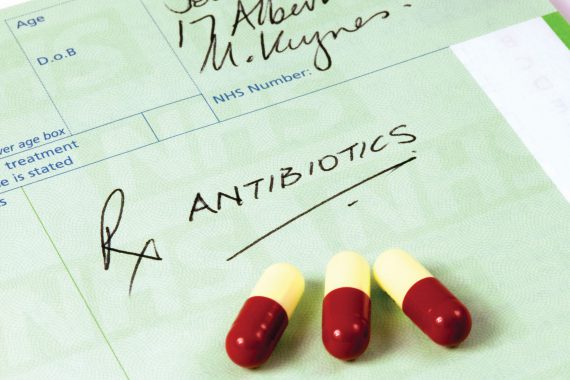Government announces £2m boost to support latest phase of antibiotics campaign

The Government will invest an extra £2m in the latest phase of the Public Health England (PHE) antibiotics campaign.
Health secretary Matt Hancock announced the new measures this week, including the development of a new payment system to incentivise pharmaceutical companies to invest in drug development, to drive down the use of antibiotics.
PHE’s Keep Antibiotics Working campaign, which was first launched in 2017, has previously been welcomed by GPs, who say it has helped them to refuse patient requests for antibiotics.
The latest phase of the campaign, set to start in October, will see a £2m funding injection to educate the public on how to best use antibiotics.
But GPs have argued that although the investment is a ‘step in the right direction’ it does not remove the longstanding blame put on family doctors for prescribing unnecessary antibiotics.
Under Government plans, the introduction of a subscription-like model for pharmaceutical companies means they will receive upfront payments for medicines based on their usefulness to the NHS, rather than based on the number of antibiotics they sell.
It is hoped this new approach will put a stop to the current situation, which encourages companies to produce higher volumes when NHS England is trying to reduce antibiotics use in a bid to address antimicrobial resistance.
Welcoming the funding boost, West Kent LMC representative Dr Zishan Syed said it does not, however, make up for the blame ‘apportioned inappropriately on GPs’ for prescribing antibiotics.
He said: ‘It’s a step in the right direction to incentivise the development of new antibiotics. However, for too long blame has been apportioned inappropriately onto UK GPs regarding antibiotic use despite the impossibility of distinguishing between viral and bacterial infections in outdated 10-minute consultations.
‘I would welcome the Government and media raising awareness on antibiotic overuse in agriculture which appears to be purposefully being overlooked despite being a major worldwide health issue.’
Health secretary Matt Hancock said: ‘There is no greater threat to global health than drug-resistant infections, yet there have been no major new antibiotic drug classes discovered since the 1980s. Imagine a world in which a papercut can lead to infection that can’t be controlled. We must stop that from happening. Tackling superbugs needs global leadership and peoples’ lives depend on us finding a new way forward.’
He added: ‘Our NHS is in a unique position to take a global lead in testing new payment models. We will take the lead but this is a global problem and we cannot succeed alone. I am proud the UK is taking the first steps towards a solution and I am urging the rest of the world to join us in the fight against superbugs.’
PHE antibiotics lead Dr Susan Hopkins previously told Pulse that while we as a nation are ‘lower antibiotics users than we were almost a decade ago’, PHE ‘want GPs to reduce antibiotics prescriptions by a further 15% from now’.
The Government recently shared its 20-year vision and five-year national action plan setting out how the UK will contribute to containing and controlling antimicrobial resistance by 2040.
Visit Pulse Reference for details on 140 symptoms, including easily searchable symptoms and categories, offering you a free platform to check symptoms and receive potential diagnoses during consultations.









